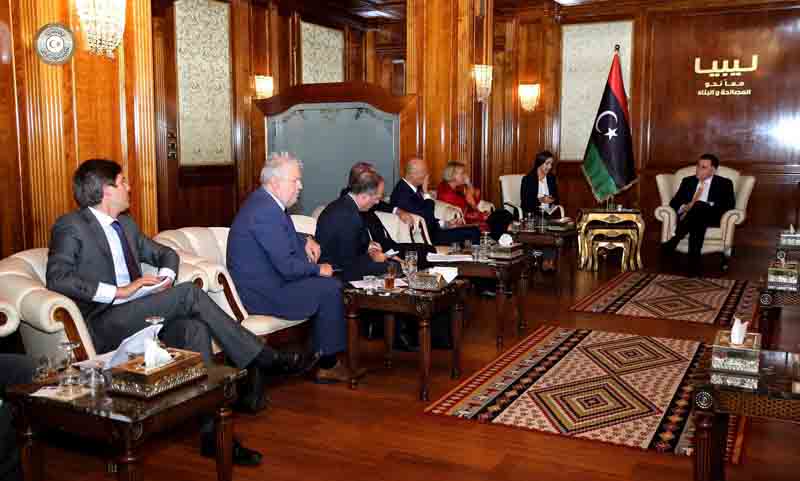By Gabriel Harrison.

Tunis, 2 August 2017:
Continued EU support for the building capacity in Libya as well as Presidency Council’s security institutions were the focus of discussions in Tripoli yesterday between PC head Faiez Serraj and EU ambassador Bettina Muscheidt. They took place just days after the extension until December 2018 of the EU’s naval Operation Sophia in the Mediterranean and EUBAM Libya aimed at helping secure all Libya’s borders.
“EU financial support to Libya targets a wide range of sectors, among them health and education institutions, private sector development and local communities as they seek to put conflict behind them. Libyans want to see their rule of law strengthened and, across the board, respect for human rights,” Muscheidt said.
Also reviewed were the need to define the parameters of the Libya-EU partnership and Libya’s need to end the arms embargo so that human traffickers could be more effectively dealt with.
The proposed constitution from Constitution Drafting Assembly was also discussed.
Serraj spoke at length about the Paris Declaration stressing that it could be the foundation on which Libya would be able to move forward. There would be several other meetings he added, in particular, with the House of Representatives (HoR).
Notable Libyan officials present at the meeting were deputy minister of defence Colonel Abdullah Ewhida, Chief of the Libyan Navy Salem Rhoumia and the chief of the Libyan coastguard Abdullah Omar Toumiyah.
For her part, Muscheidt was accompanied by a military and security team that included deputy Operation Sophia commander Admiral Angelo Virdis, EUBAM head Vincenzo Tagliaferri and EU Liaison and Planning Cell head General Mauro De Vincentis.
The visit follows the adoption last week by the EU trust fund for Africa of a new €46-million programme to reinforce the integrated migration and border management capacities of the Libya authorities








